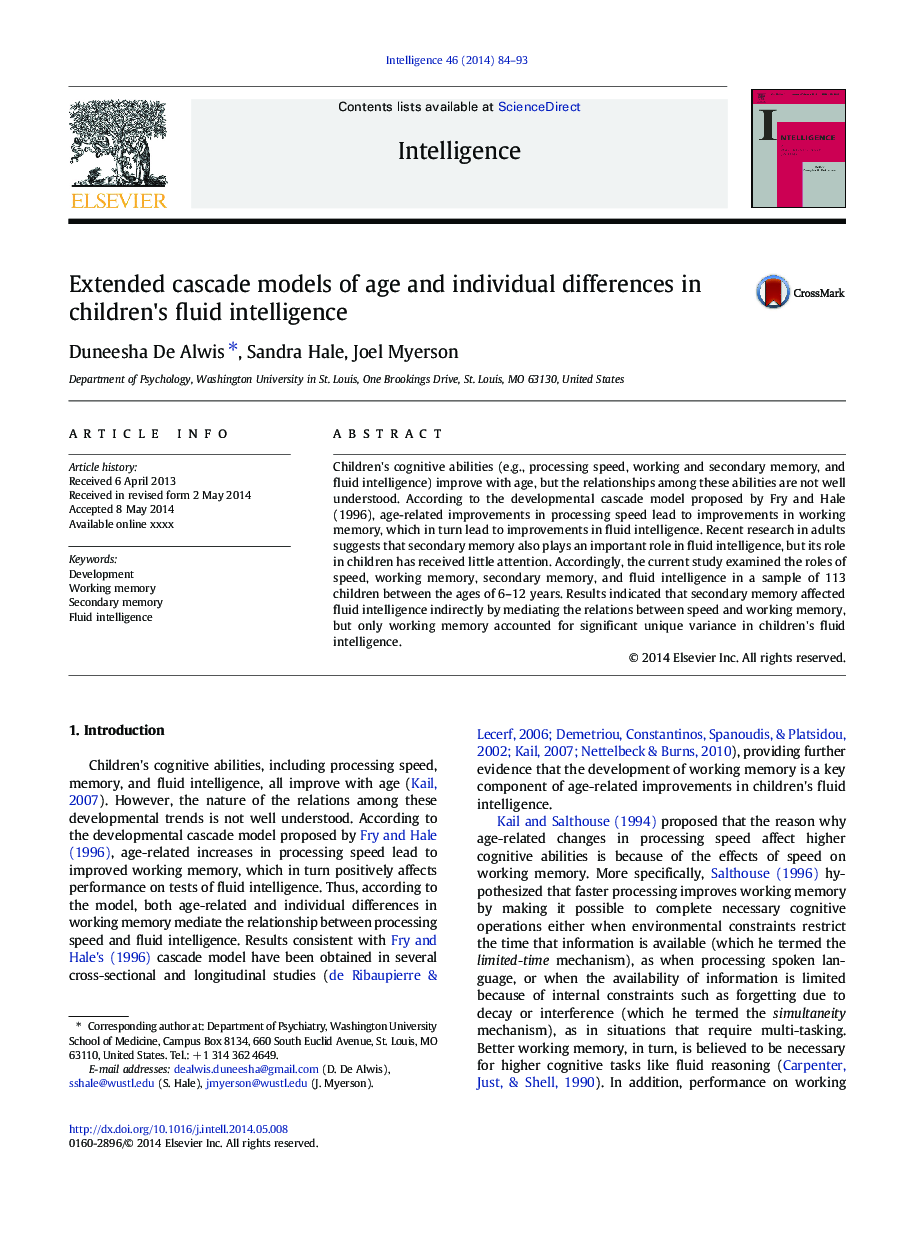| Article ID | Journal | Published Year | Pages | File Type |
|---|---|---|---|---|
| 7294273 | Intelligence | 2014 | 10 Pages |
Abstract
Children's cognitive abilities (e.g., processing speed, working and secondary memory, and fluid intelligence) improve with age, but the relationships among these abilities are not well understood. According to the developmental cascade model proposed by Fry and Hale (1996), age-related improvements in processing speed lead to improvements in working memory, which in turn lead to improvements in fluid intelligence. Recent research in adults suggests that secondary memory also plays an important role in fluid intelligence, but its role in children has received little attention. Accordingly, the current study examined the roles of speed, working memory, secondary memory, and fluid intelligence in a sample of 113 children between the ages of 6-12Â years. Results indicated that secondary memory affected fluid intelligence indirectly by mediating the relations between speed and working memory, but only working memory accounted for significant unique variance in children's fluid intelligence.
Related Topics
Social Sciences and Humanities
Psychology
Experimental and Cognitive Psychology
Authors
Duneesha De Alwis, Sandra Hale, Joel Myerson,
